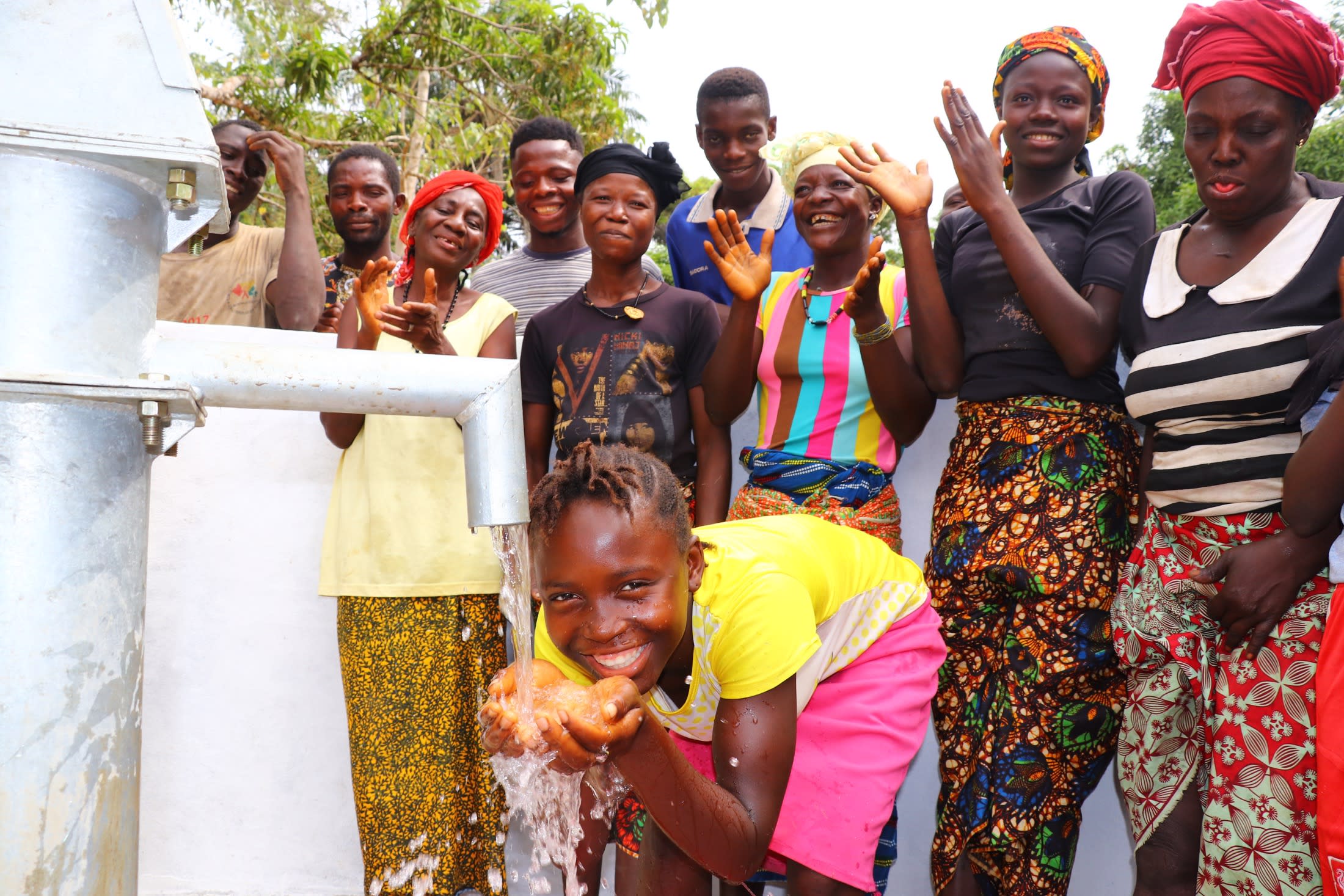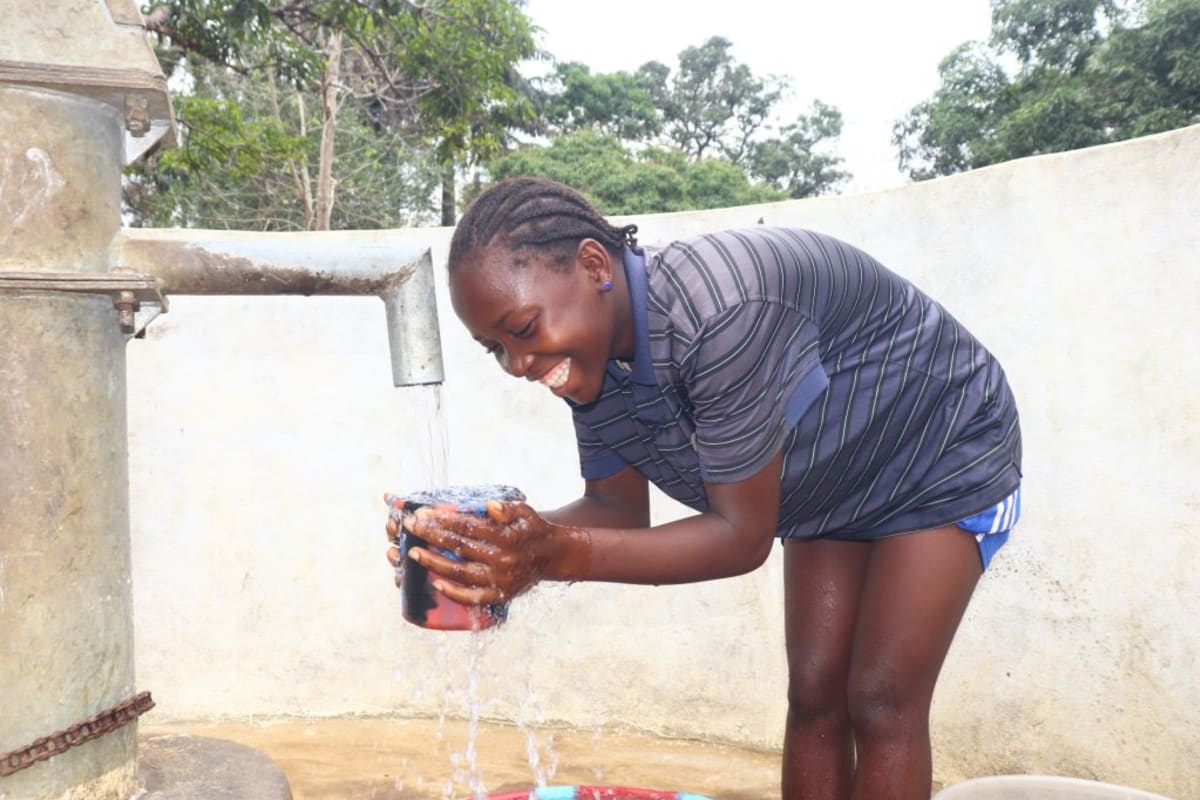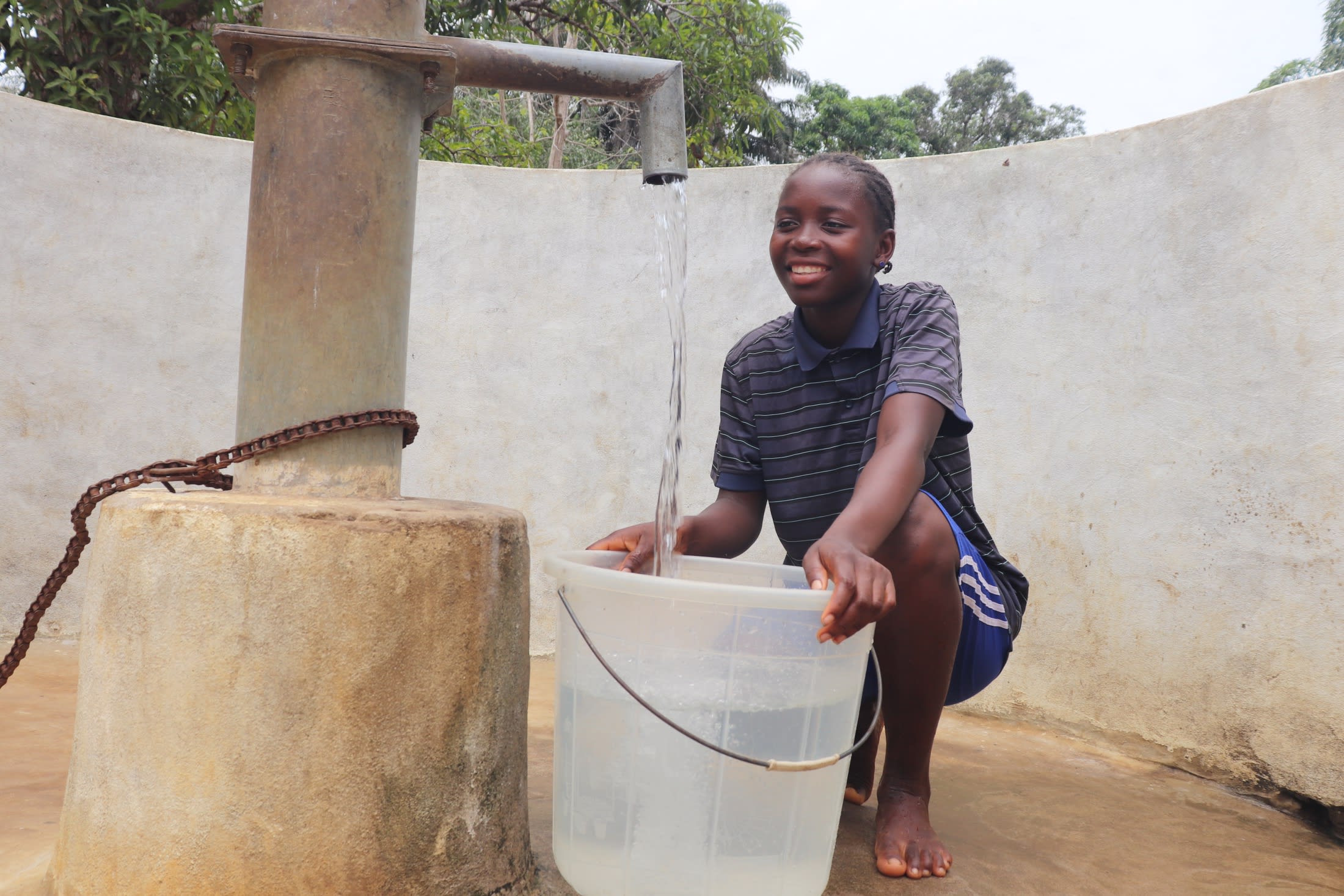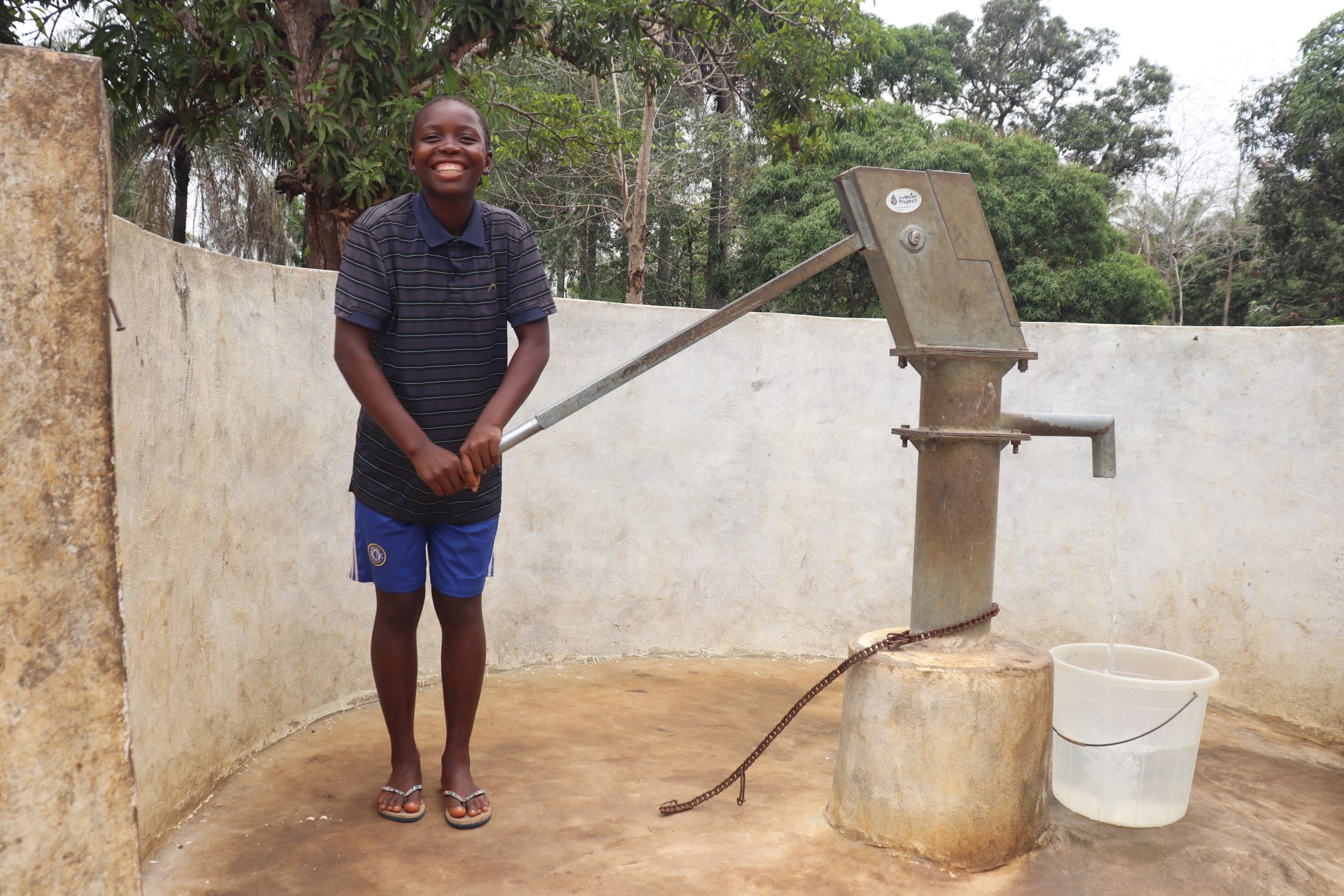In Dente-Kennenday, the 124 community members would rather collect water from a muddy hole in the swamp than trek more than two miles away to fetch water from the nearest community.
13-year-old Fodia (shown below) must fetch water at least three times a day: before school (for bathing) and after school (once to wash her school uniform and another time to get enough water for her mother to cook dinner). The thought of walking an even farther distance to fetch water would be daunting, considering that the shorter journey to the swamp already tires her out.

"Before going to school, early in the morning, I must fetch water from the swamp to bathe, but the distance is too far, and the road is not good," Fodia said. "I usually carry the jerrycan on my head to fetch water from the swamp. It is not easy to get water from the swamp, especially drinking water."
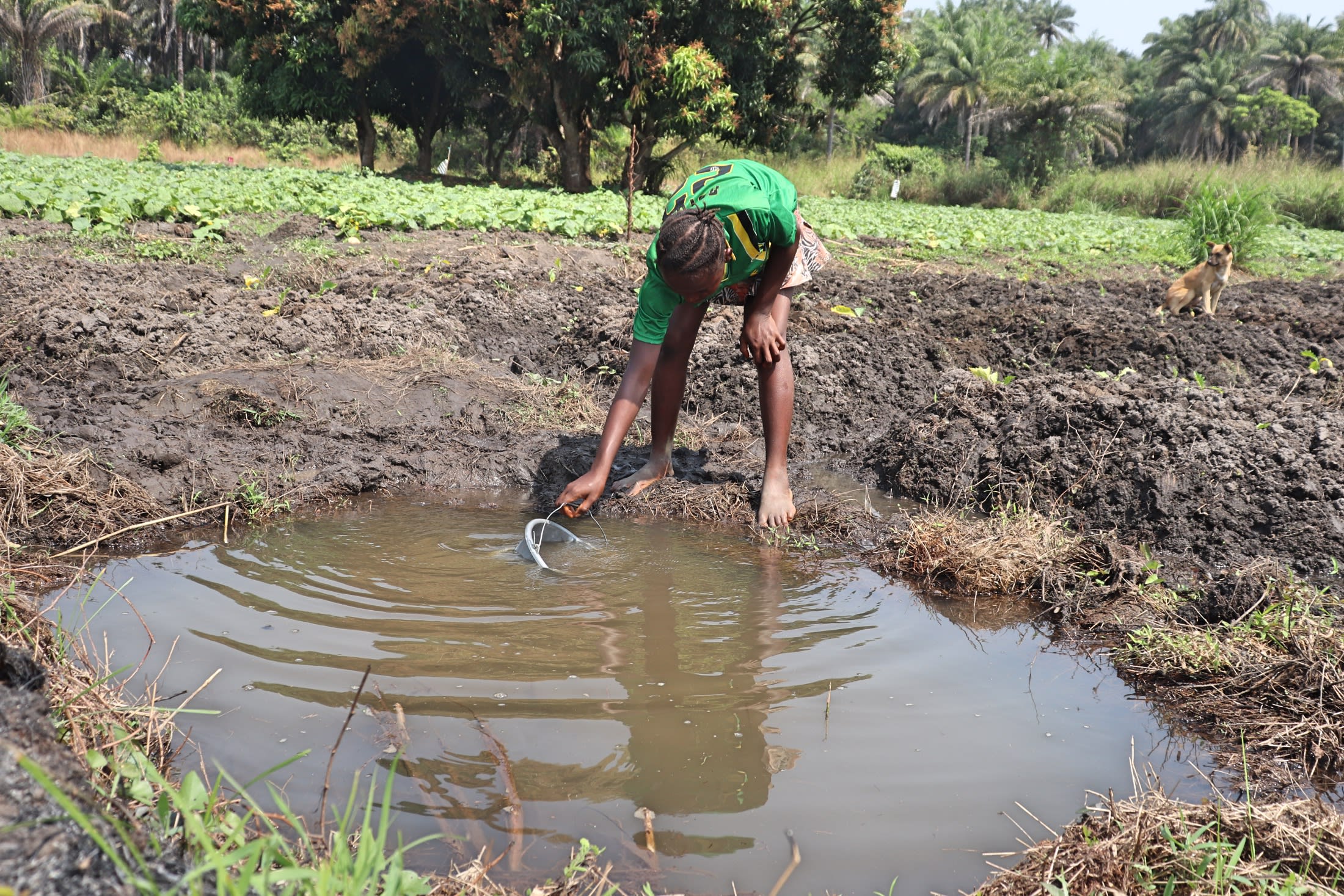
"I must fetch water every day after school to wash my school uniform," Fodia continued. "It is also not easy to complete that because there [is never] enough water to properly wash my school uniform. Fetching water after school is not easy for me because I would be hungry most times, and sometimes would be [too] tired to do work. I also need to fetch water for my mother to cook after she returns home from the farm. I take the responsibility to [bring] enough water home, and it is a burden on me."
Unfortunately, Fodia's burden is not unique.
"The current water situation in this village affects me a lot," said 23-year-old farmer Fatmata Turay (pictured below). "There is no water well in this village, and the source of water for us is the stream water. It is difficult to fetch water from the stream because of the distance; it is far away from my house. Sometimes, it takes [so much] time to make a single trip of water."

And no matter how many trips Fatmata forces herself to make each day, the amount of water in her household is somehow never enough.
"It is not easy to get enough water at home for daily use," Fatmata explained. "The little water I fetch would not be enough for me to do all my daily housework. I cannot get access to water at the time I need it, and it takes time to fetch water from the stream. My role as a woman is to do more of the domestic activities and work on the farm. But spending more time to fetch water is a delay on my side. [I end up] not completing my scheduled work."
Some people have enough money to hire motorcycle taxis called boda-bodas to take them to and from the faraway well in the neighboring community, since that two-mile journey would take a long time on foot. But those who can't afford such luxuries must resign themselves to drinking brown, dirty water from the swamp.
"The swamp water changes to dark color, and sometimes it is filthy to use," Fatmata said.
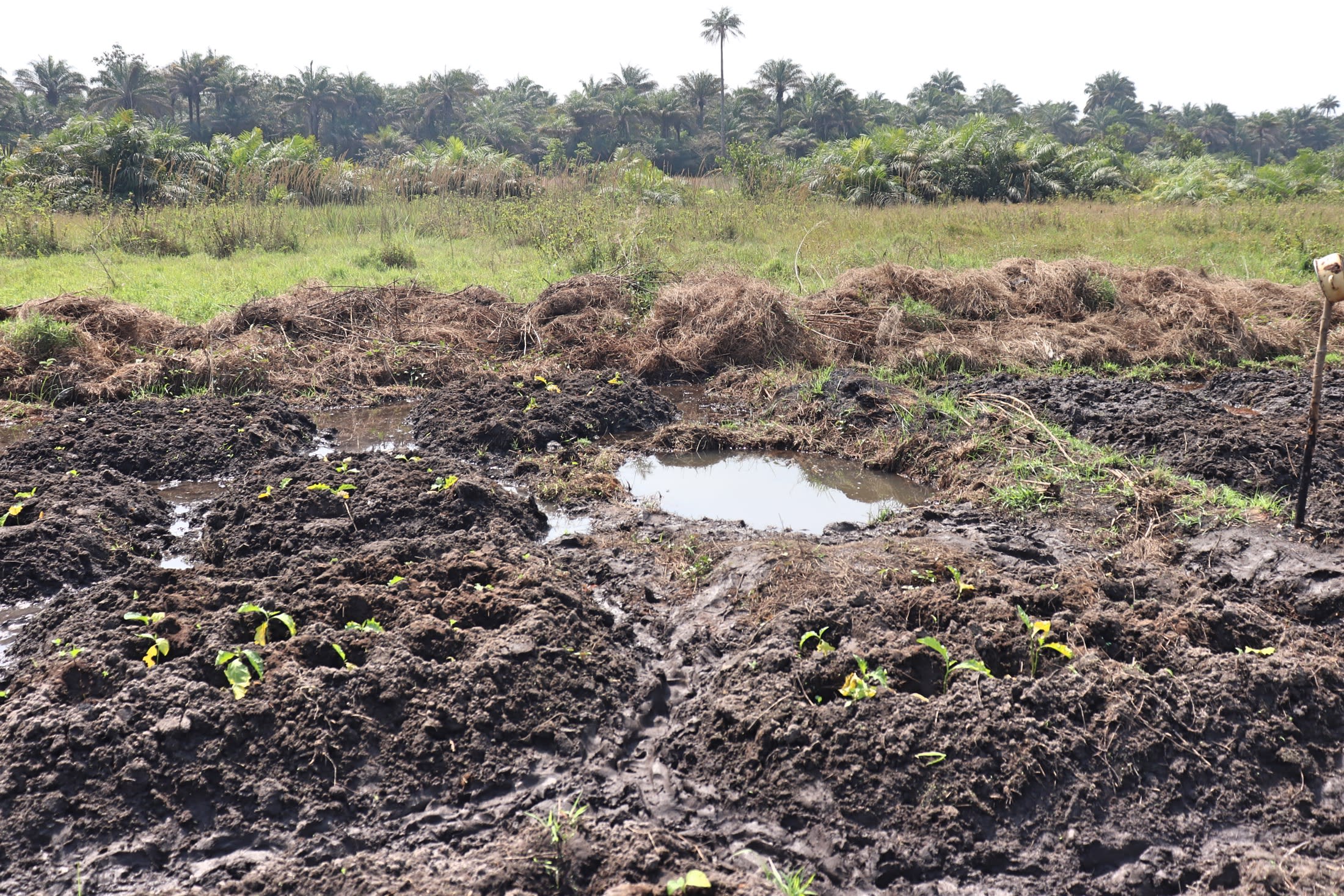
The pool of water is located right in the middle of someone's farm, probably because the water access makes irrigation a lot easier. But this means farming chemicals like pesticides and fertilizer must seep into the water that most people in Dente-Kennenday use as their main source of drinking water.
"I would not drink this water," said our field officer, Alie. "It was a great surprise to me, when we reached the water source, [and] the community said they collect this water for drinking and other activities. The water is brown and dark in color and open to contamination. There are a lot of grasses in the water and ashes, which cause the water to change color. The community people also launder [their clothes] at the water point, which also infiltrates the water source."
Drinking this water is obviously not good for the community members' health. Interviewees reported that villagers experience cases of typhoid, cholera, diarrhea, and stomach cramping.
The people of Dente-Kennenday need a water source of their own to make their lives easier and improve everyone's short-term and long-term health.
What We Can Do:
New Well
Where we will be drilling is centrally located and will relieve many people of the long journey to fetch water and the challenge of accessing clean water.
Our team will drive over the LS200 mud rotary drill rig and set up camp for a couple of nights. Once the well is drilled to a sufficient water column, it will be cased, developed, and then tested. If these tests are positive, our mechanics will install a new India Mark II pump.
By drilling this borehole, the surrounding community will be provided with plenty of accessible, clean drinking water.
Training
There will be hygiene and sanitation training sessions offered for three days in a row.
Community members will learn how to make a hands-free handwashing station called the "tippy-tap." We will use these tippy taps for handwashing demonstrations and will also teach about other tools like dish racks and the importance of properly penning in animals. We will highlight the need to keep restrooms clean, among many other topics.
This training will also strengthen a water user committee that will manage and maintain this new well. They will enforce proper behavior and report to us whenever they need our help in solving a serious problem, like a pump breakdown.

 Borehole Well and Hand Pump
Borehole Well and Hand Pump
 Rehabilitation Project
Rehabilitation Project









